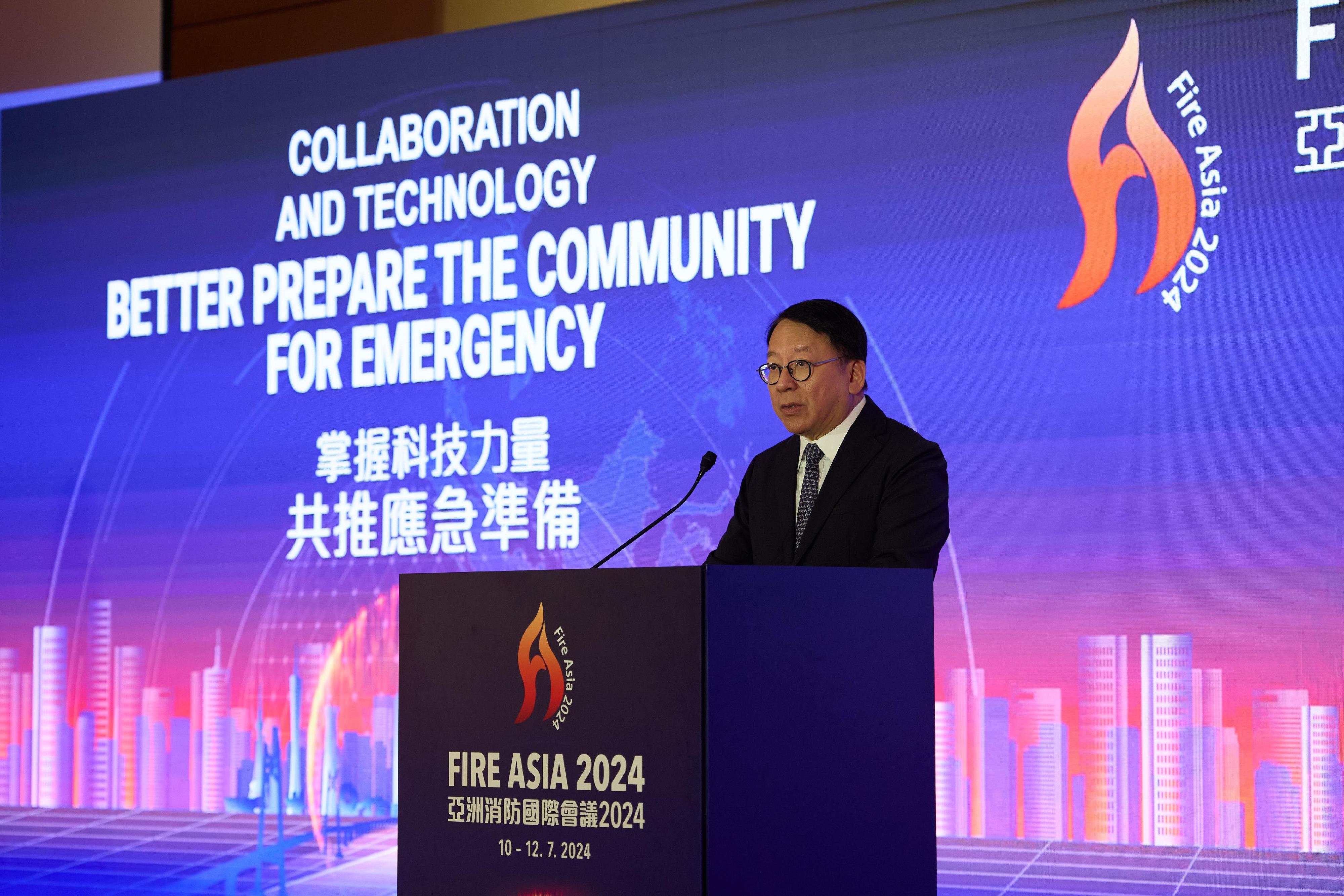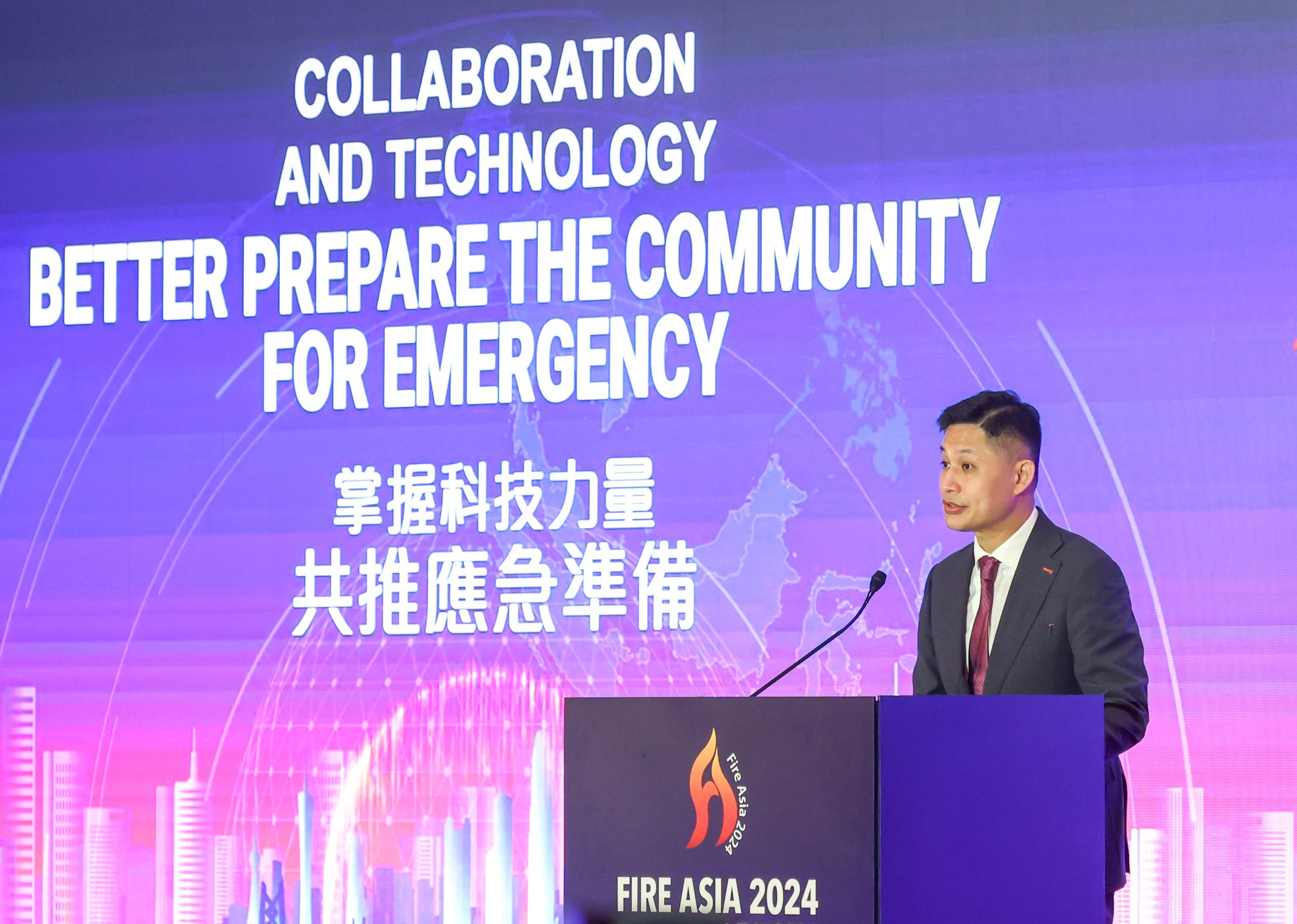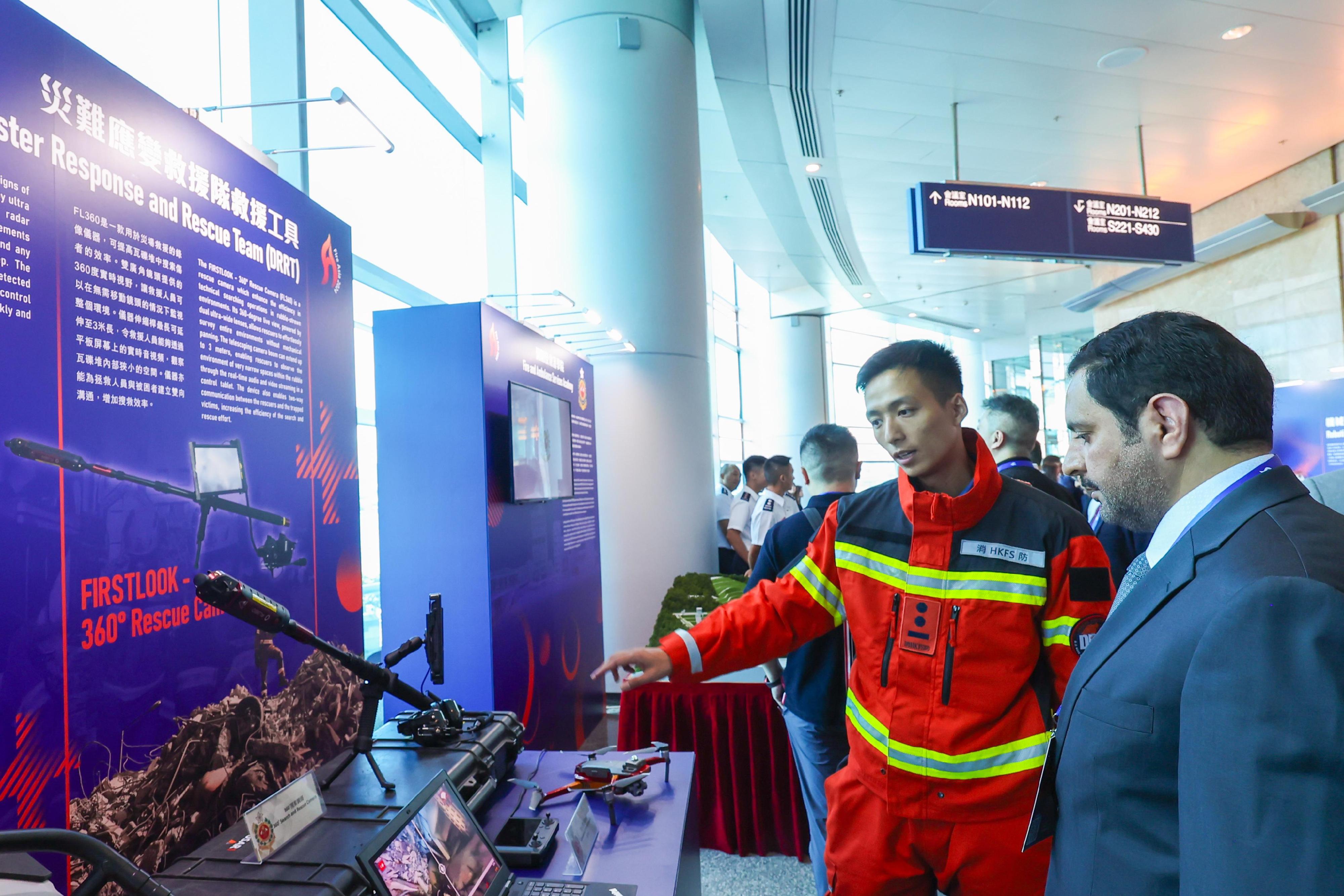Following is a question by Professor the Hon Lau Chi-pang and a reply by the Deputy Chief Secretary for Administration, Mr Cheuk Wing-hing, in the Legislative Council today (July 10):
Question:
The District Matters Co-ordination Task Force, which launched the territory-wide Hong Kong New Cityscape clean-up campaign in 2022, has subsequently been revamped as the Working Group on Environmental Hygiene and Cityscape to continue to follow up on environmental hygiene work. In this connection, will the Government inform this Council:
(1) given that cityscape enhancement involves many aspects, including environmental hygiene, public health and street management, how the Working Group plays a steering and co-ordinating role in liaising with relevant government departments in resolving problems; whether the Working Group has established a set of standard mode of operation for regularised execution in the districts;
(2) of the mechanism for referring complaints and suggestions received through various channels to the Working Group; how the Working Group handles complaints and suggestions, and the average time taken to handle each case; and
(3) as it is observed that there is currently a considerable amount of rubbish and dirt on the ceilings of some lift shafts and lift wells in the districts, and many motorists have also relayed that the edges of many central reservations are overgrown with weeds, whether the Working Group has drawn up guidelines to proactively deal with such hygiene blind spots; if so, of the specific work plan; if not, how the Government deals with such hygiene blind spots?
Reply:
President,
My consolidated reply to the questions raised by Professor the Hon Lau Chi-pang is as follows:
The current-term Government attaches great importance to district environmental issues and is committed to improving environmental hygiene and street management, so as to build a liveable environment for the public and boost our city’s image. Shortly after assuming office, the Chief Executive appointed the Deputy Chief Secretary for Administration (DCS) to lead the District Matters Co-ordination Task Force (DMCTF) which launched the Government Programme on Tackling Hygiene Black Spots and cityscape beautification works.
Under the district governance structure established in July 2023, the Steering Committee on District Governance is chaired by the Chief Secretary for Administration, and the Task Force on District Governance (Task Force) is chaired by the Deputy Chief Secretary for Administration. Under the new structure, the DMCTF was renamed as the Working Group on Environmental Hygiene and Cityscape (the Working Group) and placed under the Task Force.
Cityscape and environmental hygiene are closely related. To improve environmental hygiene, as early as the days of the DMCTF, the DCS already formulated the standard mode of operation, i.e. departments concerned will conduct joint operations in accordance with the division of labour set by the DMCTF, to tackle district environmental hygiene problems that involve various departments with hitherto unclear delineation of responsibilities. A successful example is the handling of abandoned motorcycles in back alleys. By end of May 2024, various departments have carried out more than 130 inter-departmental joint operations across the 18 districts according to the standard mode of operation, resulting in the removal of over 630 abandoned vehicles, more than 90% of which were motorcycles. Besides, many environmental hygiene black spots that have plagued the districts for years, including the Flower Market in Mong Kok, Ngau Chi Wan Village in Wong Tai Sin, Yuen Long New Street, Lung Fung Garden in Sheung Shui, Bowrington Road in Wan Chai, etc. have all been tidied up through the joint operations conducted by the Hong Kong Police Force and the Food and Environmental Hygiene Department (FEHD) under the standard mode of operation, and the streets are now reinstated to their original conditions. Moreover, the DCS discusses with relevant departments on a need basis from time to time and gives instructions on thorny district environmental hygiene problems. After two years, the hygiene conditions of 90 per cent (638) of the 738 black spots identified have substantially improved.
To consolidate the achievements of the Programme, the Task Force has conducted a comprehensive review on the statutory powers and penalties of environmental hygiene-related legislation to enhance the Government’s efficiency, effectiveness and deterrence in handling various environmental hygiene problems. The review is conducted in two stages. The first stage focuses on the offences related to littering and shopfront extension, with the penalty levels raised substantially from $1,500 to $3,000 and $6,000 respectively with effect from October 22, 2023. Comparing the six months before and after the effective date of the new penalty levels, the number of fixed penalty notices (FPNs) issued by enforcement departments against environmental hygiene offences (such as littering) has decreased by over 30 per cent (from about 23 400 to about 15 000), whereas the number of FPNs issued against shopfront extension and illegal disposal of large amounts of waste has also dropped substantially by about 80 per cent (from about 4 100 to about 630). This reflects that the new penalty levels have quite substantial deterrent effect, and the improvement in cityscape can also been maintained. In the second stage of the review, the Government will introduce legislative amendments and implement new administrative measures to enhance the Government’s efficiency and effectiveness in tackling various environmental hygiene problems. For example, the FEHD’s enforcement power will be further strengthened to handle shopfront extension more effectively; and the requirements for concerned premises to co-operate with the Government’s investigation and the relevant penalty on violating such requirements in cases of public health nuisances such as water seepage in buildings, water dripping from air-conditioners and “garbage apartments” will be stipulated in the law. The Environment and Ecology Bureau is drafting the relevant bill and expects to introduce the amendment bill into the Legislative Council by the fourth quarter of this year.
Apart from handling the environmental hygiene problems, under the leadership of the Working Group, relevant departments have also been implementing various beautification works to improve cityscape. These works include the Leisure and Culture Services Department (LCSD)’s “Shining City Project” which beautifies the central dividers and roundabouts of major roads; the Highways Department (HyD)’s efforts to beautify footbridges and subways and expand the scale of repaving footpaths; the Drainage Services Department’s incorporation of greening, ecological conservation and water landscape elements into its flood prevention projects; and the Housing Department’s phased implementation of minor improvement works in its public housing estates, covering façade beautification, enhancement of recreational facilities and public spaces, etc.
As regards the handling of day-to-day complaints or suggestions, various departments handle them in accordance with their own mechanisms. Should the department find that a certain situation warrants high-level consideration and co-ordination of follow-up actions, it may also report the issue to the Task Force and seek its steer. The aforementioned shopfront extensions plaguing the districts in the Flower Market and Ngau Chi Wan Village are successful examples of problems resolved through such a high-level steering approach.
Concerning the rubbish and dirt on the ceilings of some lift shafts and lift wells, for lifts of footbridges, the HyD is responsible for the regular cleansing of the structure (including the lift shaft) every quarter to keep the lift structure in good condition. On the other hand, as regards the overgrowing of weeds at the edges of central reservations along expressways, contractors engaged by the HyD will carry out regular inspections and follow up upon spotting overgrown weeds or receiving a public complaint. Besides, the LCSD is responsible for the horticultural maintenance of flower beds located at the road sides and central reservations along non-expressways. The department regularly arranges plantation and pruning of plants; clears weeds and rubbish in flower beds; and increases the frequency of pruning plants and clearing weeds in plant fast-growing season, so as to keep the city clean and tidy.
Thank you, President.




